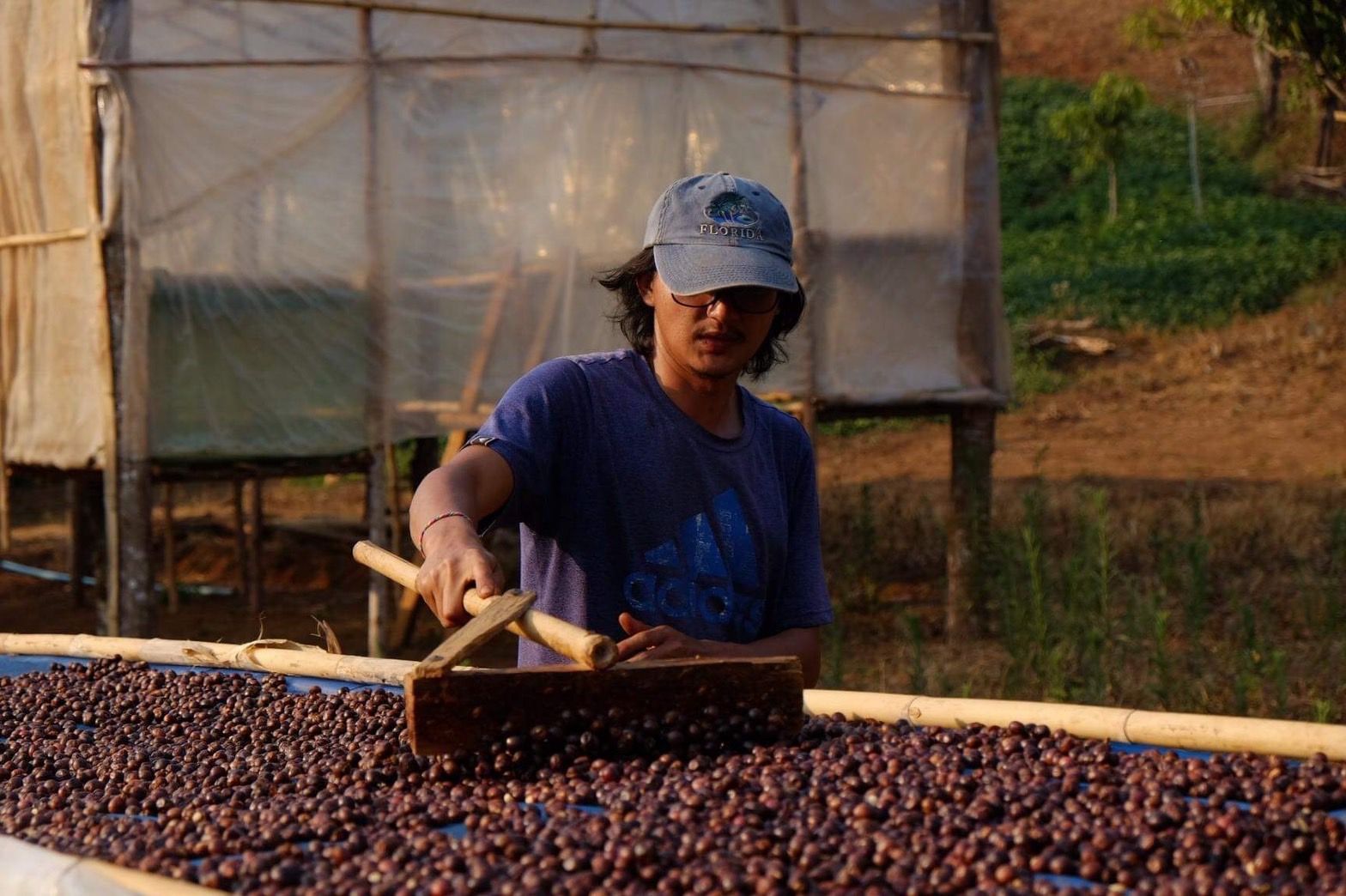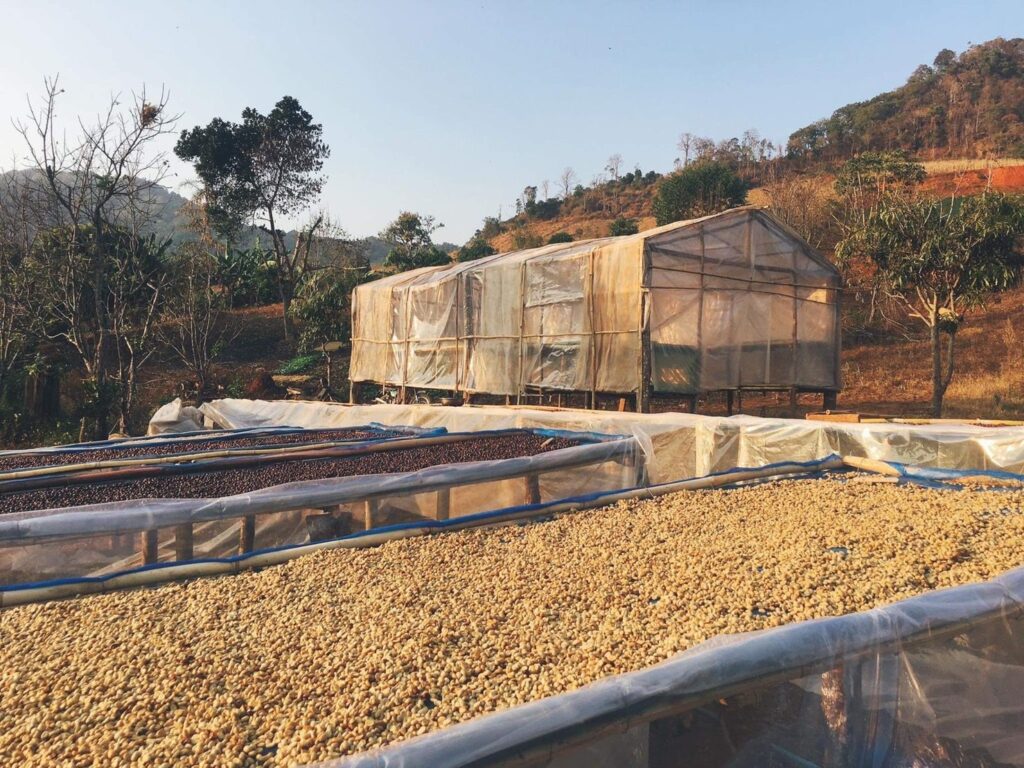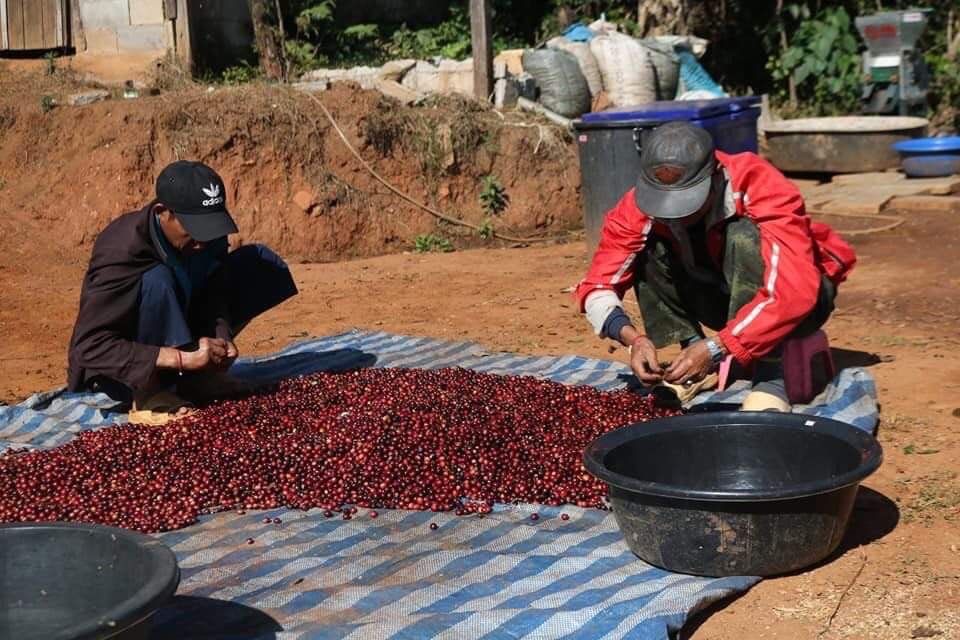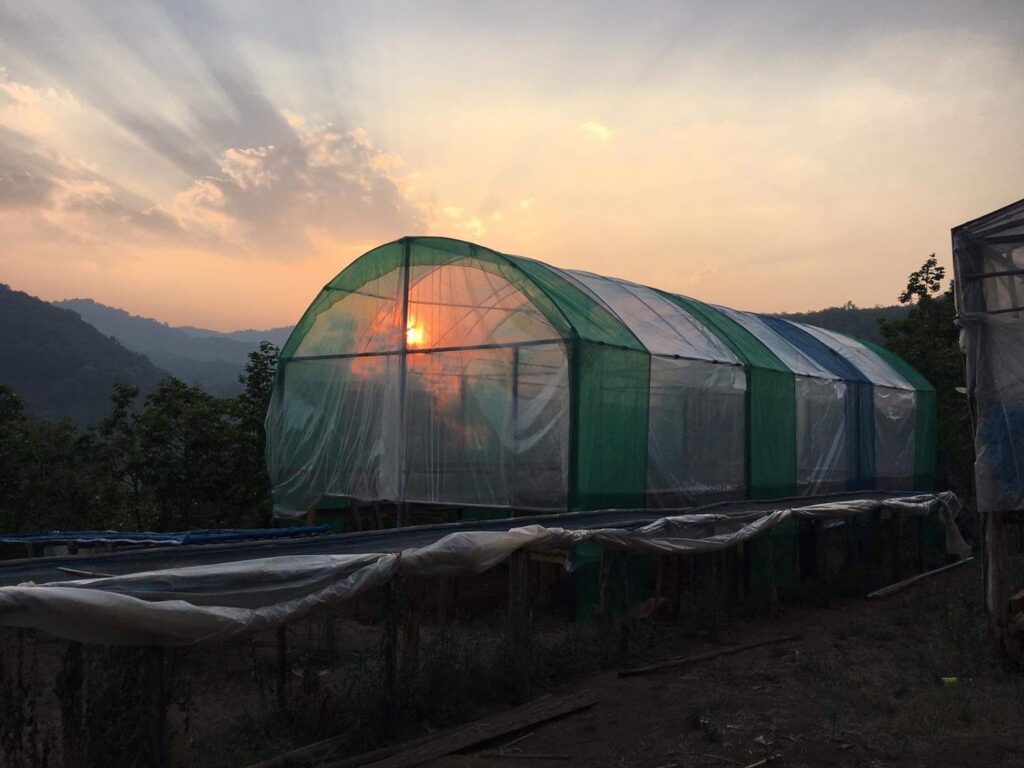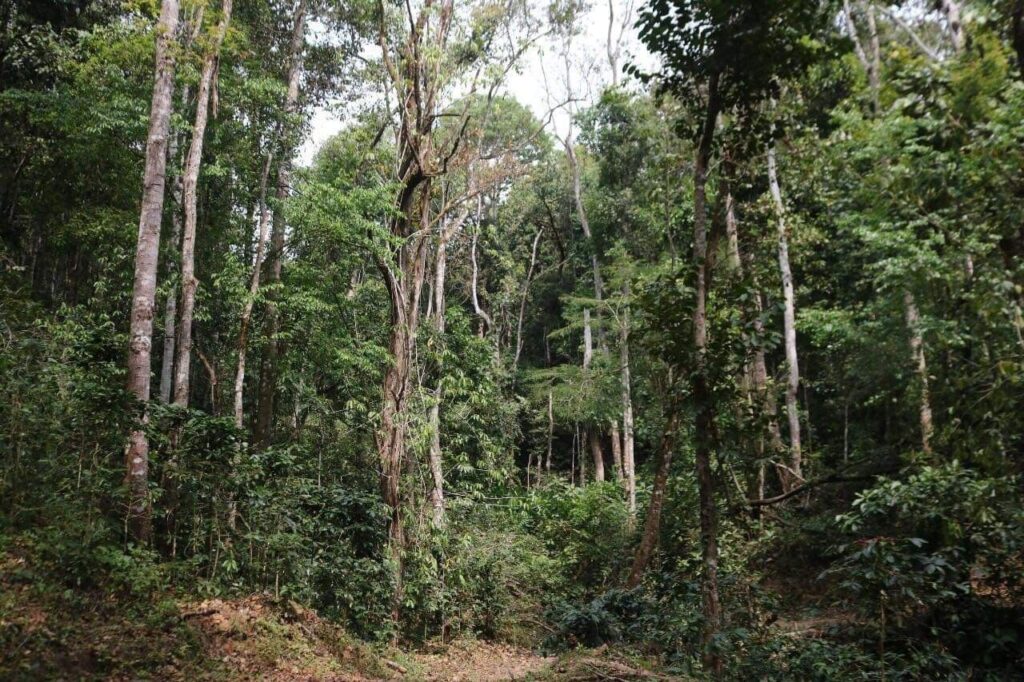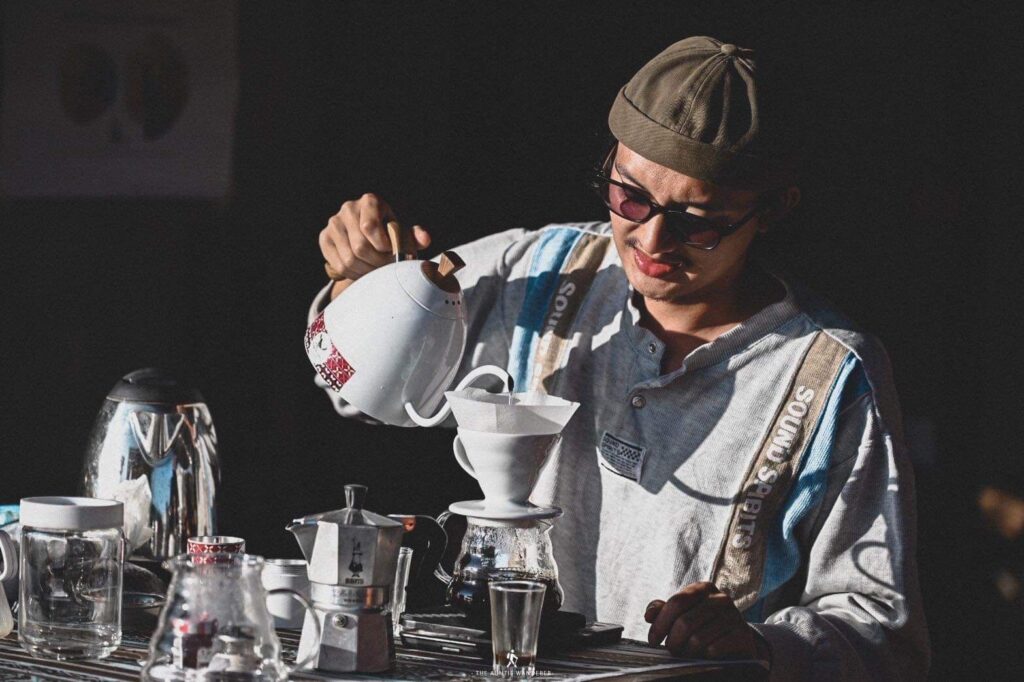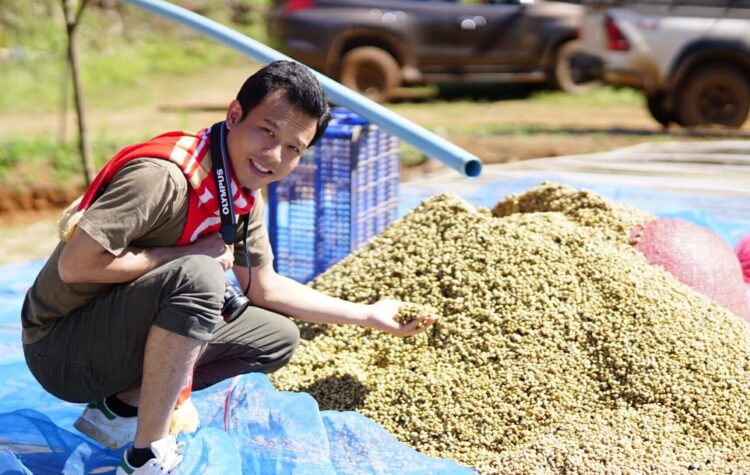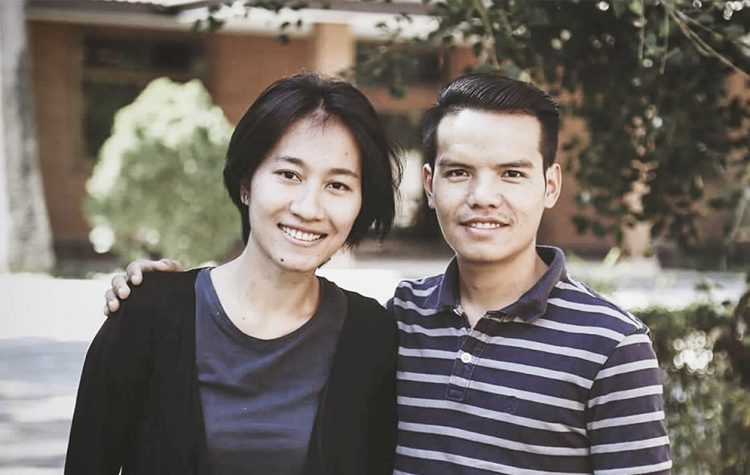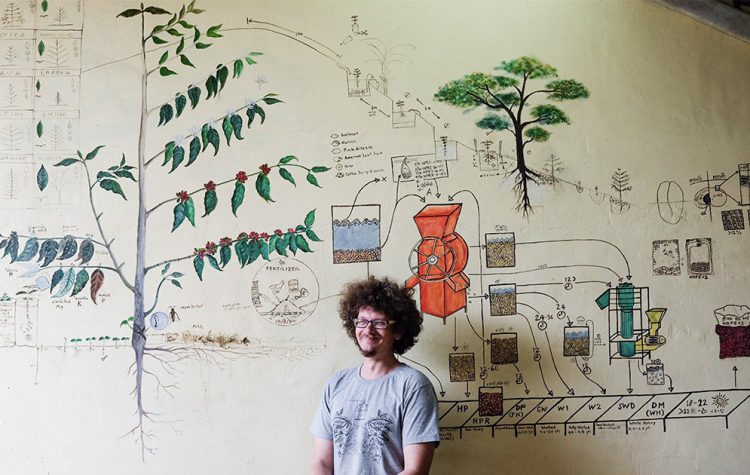For us, Toki, a 27-year-old coffee processor from Chiang Mai’s Kalayaniwattana District, represents a new generation of coffee processors with both fascinating and admirable ambitions for Thailand’s coffee industry.
Toki has only been seriously processing coffee for 3 years, but in that time he has gone through numerous trials and errors, gaining expertise and knowledge in the process of coffee-making. During this journey, Toki shares his coffee experiences with his fellow coffee farmers in Khun Mae Ruam in hopes of improving the community.
All of this work and effort is aimed at ensuring that coffee from Khun Mae Ruam, a place he adores, has a sustainable future in the Thai coffee industry.
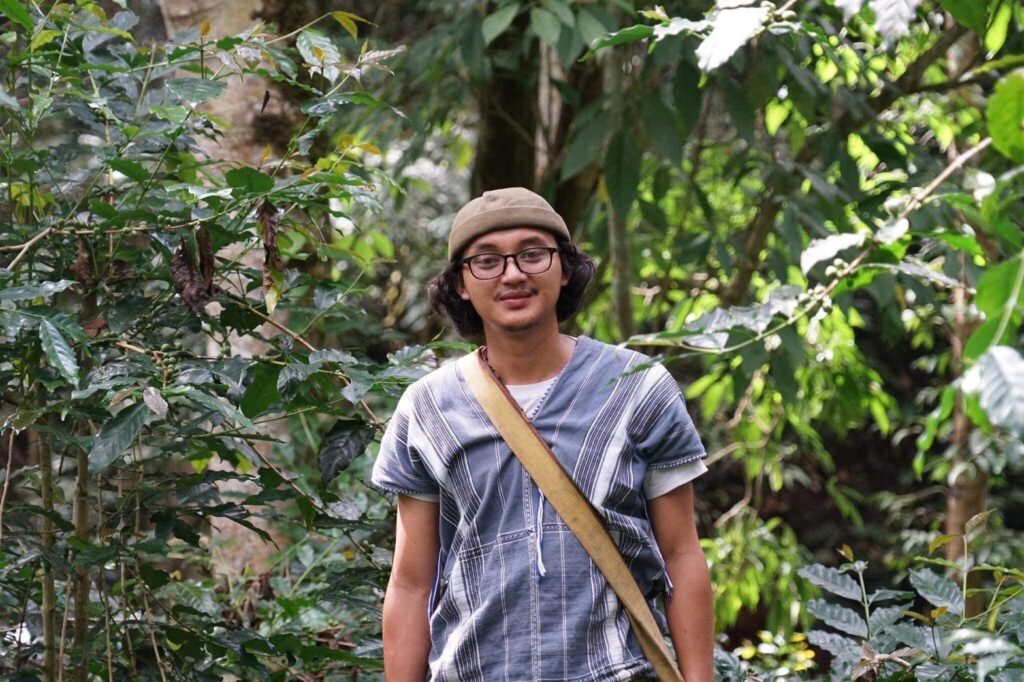
What were you doing prior to pursuing a career in coffee?
Toki: Before this, I worked in the city and eventually got bored and wanted to go home. Initially, I began gardening, growing fruits and organic vegetables and selling them under the name Toki Organic Farm.
When did you realize you wanted to be a part of the coffee industry?
Toki: Well, coffee plants have been in our community for generations before me. The people who brought them in were most likely a group of missionaries around 50 years ago, but no one wanted to continue the business after that, so the coffee plants were left there. When I moved home, no one was processing coffee. All that would happen is a middleman would come and buy our coffee cherries. When someone came to buy the cherries, the farmers picked them; when no one came to buy the cherries, the farmers simply left them in the forest. Nobody was taking coffee as a serious business, which is something I’ve been aware of since I was a child.
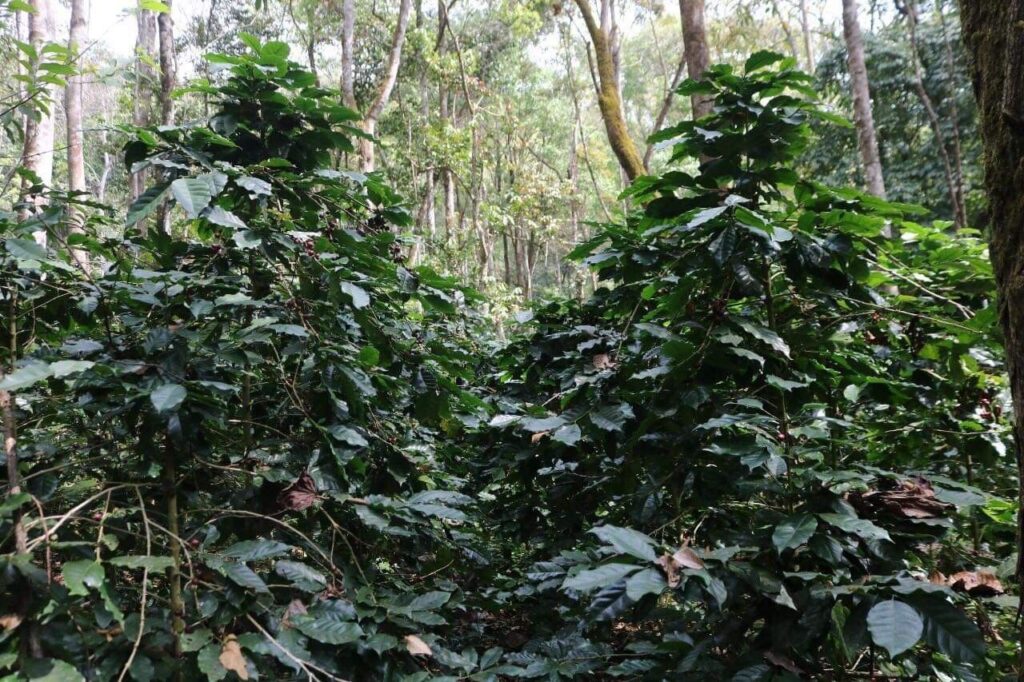
I called my uncle one day because he used to process coffee 30 years ago. My and my relatives’ gardens have coffee plants, so I went to collect some to process for fun. At the time, I had very little knowledge and no equipment.
In the first year, I used the Natural processing method. My farm was selling products at an event in Muang Thong, so I went with them and brought some coffee beans to sell as well. We were fortunate to already have a customer base from our organic farms, so when they discovered that we sold coffee, they were interested. My Naturally processed coffee does not have a strong fermentation smell and tastes clean. This type of coffee was in-demand at that time, so I had the opportunity to speak to a lot of customers to learn more about the industry.
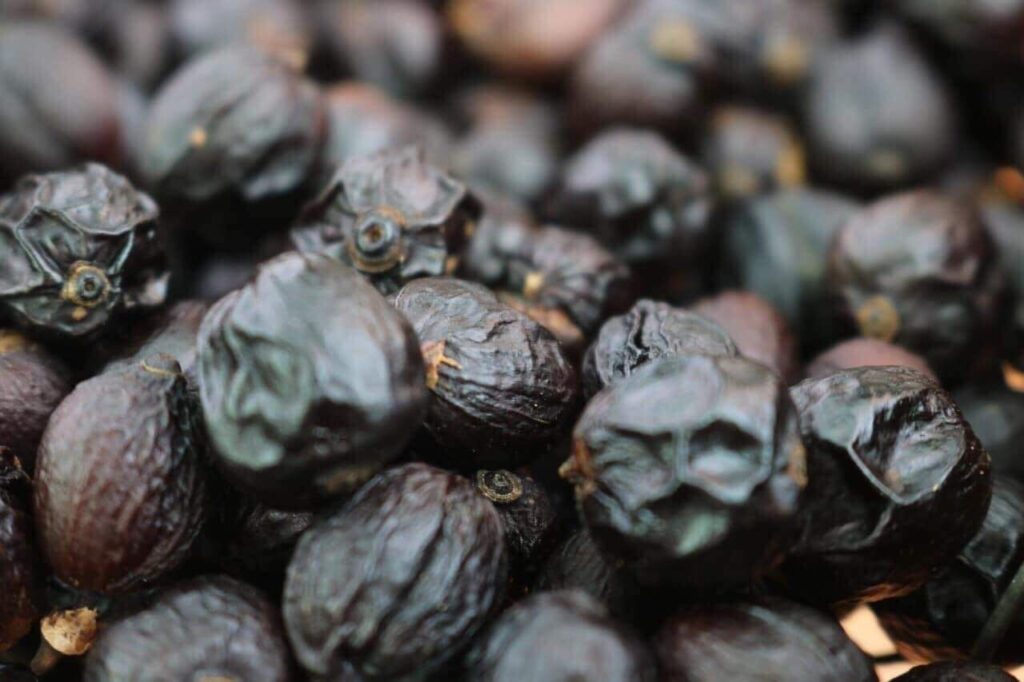
How has the feedback from your first year and how has it changed your goals?
Toki: After the event, people traveled to see our coffee farm. I was fortunate enough to meet P’Tee’s team from Graph Cafe and P’ Uan from Gallery Drip, and we got to discussing coffee processing, which gave me the confidence to try more coffee processing methods.
In the second year, I purchased cherries from villagers in my community and established the brand Toki Coffee. From this, I saw that it had potential because of the level of interest and the fact that it comes from an organic farm. Plus, logistics for coffee are much easier than for veggies and fruits, so I shifted my focus away from that and began to concentrate solely on coffee.
What are your goals?
Toki: In the long run, I’d like to work with the FDA to bring my coffee overseas so that it can be sold globally. Another goal is to build a team and give the next generation of people in the village the opportunity to create a sustainable and more secure source of income by working in the coffee industry as a barista, roaster, or other coffee processor in the community. In this way, we assist one another in bringing our coffee to the global market.
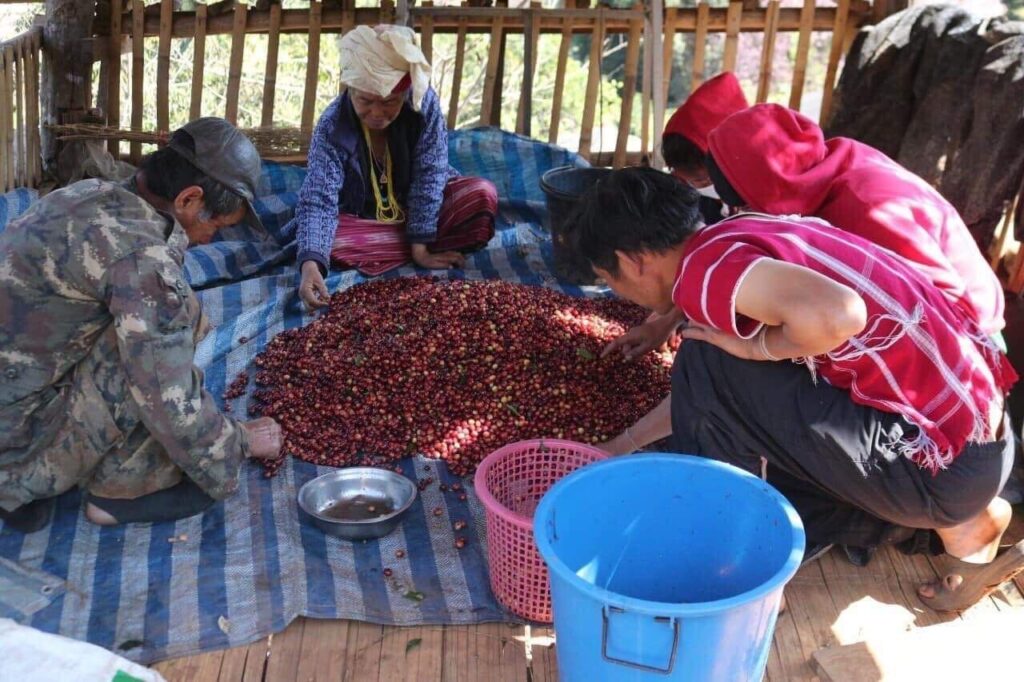
As for this year, I’d like to start a community enterprise to further the knowledge of the villagers. The supply of coffee I’m selling is small in comparison to the market’s current demand and all of the villagers in the area have untouchable coffee plants in their gardens. I’d like to start by teaching them how to care for the coffee plant and pick the coffee cherries because many of them don’t know how to do so yet.
Why do you place such a high value on people?
Toki: Because what I have now was given to me by those who came before me.
What does Khun Mae Ruam Coffee mean to you?
Toki: I love coffee so much because it has taught me so much. It’s been around for more than 30 years in our community, but no one has capitalized on it. The community kept planting coffee plants to preserve the forest and to avoid using chemicals in the water. In a way, coffee plants represent forest conservation, and as a new generation of coffee processor, I want to continue caring for my coffee and ensuring that it continues to be produced with these intentions for future generations.





